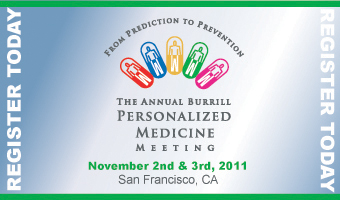“The increasing number of these deals is a win-win proposition for the pharmaceutical industry, but a lose-lose for everyone else.”
So-called pay-for-delay deals between pharmaceutical companies and generic rivals grew by more than 60 percent in fiscal 2010, according to a new report from the Federal Trade Commission, which continues to push to outlaw such agreements. The agency says the deals come at a hefty price tag to taxpayers who pay billions of dollars more for drugs because they delay the entry of lower-priced generics into the market.
“Pay-for-delay” refers to settlements of patent challenges brought by generic drugmakers against their branded drug competitors in which the branded companies provide payments as part of an agreement that delays the introduction of generic competition to the market. The FTC says such settlements that include a payment delay generic entry by 17 months longer on average than those that do not include a payment.
The FTC found that 31 final settlements reached during fiscal 2010 between branded and generic drugmakers included both compensation to the generic drugmaker as well as a restriction on their ability to market a product. The agency says these agreements involved 22 different brand-name pharmaceutical products with combined annual U.S. sales of about $9.3 billion.
“Collusive deals to keep generics off the market are already costing consumers and taxpayers $3.5 billion a year in higher drug prices,” says FTC Chairman Jon Leibowitz. “The increasing number of these deals is a win-win proposition for the pharmaceutical industry, but a lose-lose for everyone else.”
The FTC has challenged a number of these patent settlement agreements in court, contending that they are anticompetitive and violate U.S. antitrust laws. The agency also has supported legislation in Congress that would prohibit settlements that increase the cost of prescription drugs.
But pharmaceutical industry trade groups have fought such efforts and dispute the conclusions of the FTC as to the effects these settlements have on taxpayers and consumers. The Generic Pharmaceutical Association called the FTC’s understanding of patent settlements “flawed” and says it “misleads consumers.”
“The FTC is continuing to perpetuate the myth that pro-competitive, pro-consumer patent settlements are harmful to consumers—an unsubstantiated position that has repeatedly failed to receive support in both Congress and the Courts,” the organization said in a statement issued in response to the latest FTC report. “Patent settlements have never prevented competition beyond the patent expiry, and generally have resulted in making lower-cost generics available months and even years before patents have expired.”
Pointing to a Royal Bank of Canada analysis, the association argued that such settlements increase savings because, without them, litigation would lead to greater delays in bringing generic drugs to market. RBC found that generic drugs came to market prior to patent expiration in 48 percent of cases that were litigated compared to 76 percent for cases that ended in settlements.
Not surprisingly, the Generic Pharmaceutical Association’s prescription to Washington is if it wants to get serious about saving money it should stop worrying about these settlements and instead focus on initiatives to promote the use of generics for federal and state government funded health care programs and accelerate the approval of more affordable generics by increasing funding for the Office of Generic Drugs.
May 06, 2011
http://www.burrillreport.com/article-ftc_pay_for_delay_costing_taxpayers_billions.html






.gif)
